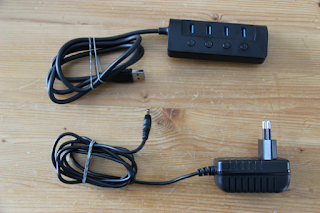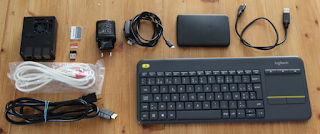If you have been using your Raspberry Pi for browsing you should already have noticed that the provided browsers sometimes run slow or very slow. It is also an impediment to the general functioning of the Raspberry Pi.
The provided browser is Chromium. You might sometimes find Epiphany or Midori as provided browser but they tend to show less often in installations nowadays.
While Chromium claims itself to be lightweight, it isn't really the case from a Raspberry Pi point of view. Hereafter we will see the alternative fast browsers you can use.
Category #1: the real lightweight browsers
Here we are looking for a browser mainly for its running speed. What we are looking for here is mainly following links, displaying images and downloading. Heavily scripted pages like Gmail are here out of scope.
You have 5 (3+2) competitors in that list:
Luakit
Out of the 5 Luakit will be the slowest but it still runs on a Raspberry with a more than acceptable speed. Luakit will answer almost all your needs in matter of following links and downloading. It is the most supportive browser of the 5. The drawback of Luakit is that it mainly works with keyboard commands.
What you should know follows:
- "o" = open new page
- "r" = reload (might be needed when opening the browser to trust URLs)
- "i" = input (to enter text in a field, for example in Google or DuckDuckGo)
- "f" = follow - will show a list of links that can be followed and their position on the page. Type in the link number to follow it.
Links are also mouse responsive so you can use your mouse for these as well.
Give Luakit a chance and you will not be disappointed. It is in my humble opinion the best competitor of this category. The other ones have less support at a point it can hurt your browsing.
 |
These download links work in Luakit
|
Summary: pros and cons
😊 Good support for links
😊 Installs with sudo apt-get install luakit
😊 No lags (unless the site itself lags)
😊 Out of this list Luakit is the only browser that supports Twine
😞 Using keyboard can be a little awkward at the beginning
Netsurf
Netsurf is my second favorite in the list. It is the fastest GUI and it has the second best support in the list. I have noticed that some javascript links don't open which can be an issue. The links to
download RPGMaker RTP's are an example of links that don't work. For Github and search Netsurf sure does the job. The con: Netsurf is not debian-packaged and must be installed from Netsurf's site.
Netsurf must be built from source code. |
Netsurf is very basic but also very fast
|
Summary: pros and cons
😊 Meteoric
😊 Second-best site support in this category
😞 Must be built from source
😞 Javascript only very partially supported
Dillo
Finally, Dillo closes the ball of the lightweight GUI internet browsers. If you are a nostalgic, you will like Dillo: it looks like Netscape back in the 90's. It is fast but support for anything else than HTML is almost unexistant. Dillo is easy to install and "sudo apt-get install dillo" can be a savior in the case you quickly want to set up a lightweight system and go on github. Don't expect exciting support however.
 |
I don't like dillo much but it is a quick and easy pick
|
Summary: pros and cons
😊 Meteoric
😊 Easy to install with sudo apt-get install dillo
😞 Very basic support
Lynx
Lynx is a bit off this list: it is a full text-based browser. However it stays in the race and is surprisingly easy to use. In the vast world of text-based internet browsers (grand total of text-based internet browsers = 2). Lynx could be labelled as the most basic. It does not offer menus and is keyboard reactive only, a bit like Luakit. Lynx is definately a good lightweight browser especially if you don't want LXDE on your installation. Graphical browsers are however still easier to use.
 |
Lynx on Raspberry Pi: a summary of commands
at the bottom edge and arrow keys are used to scroll.
|
Summary: pros and cons
😊 Meteoric
😊 Easy to install with sudo apt-get install lynx
😊 Surprisingly good website support
😞 Not very good in page formatting
Elinks
Elinks approach differs from Lynx. Although it is also text-based, the look and feel has been carefully thought. Using Elinks you will almost feel that you are using a graphical internet browser. There are menus, more responsive keys, and it is more user-friendly. The drawback is that it brings more bloatware (it is actually bigger than Netsurf) but there is nothing really to worry about. Links are well responsive and general surfing is ensured.
 |
Javascript download links usually work in Elinks
|
Summary: pros and cons
😊 Meteoric
😊 Easy to install with sudo apt-get install elinks
😊 Surprisingly good website support
😊 Better page layout than Lynx
😞 Surprisingly bloatware
Category #2: browsers with more features
These browsers are more adapted if you want to run recent pages with a decent support: HTML5, recent js script, plugins, embedding... These browsers will give you a sufficient support for most of the pages (including for example gmail). All of these browsers support Twine games.
Epiphany and Midori
I put Epiphany and Midori in the same topic. If you try both, you will notice that Epiphany is just a Midori with a better Raspberry Pi optimization. It means that if you like those browsers you will rather pick Epiphany over Midori: less lags, same features, same look and feel.
Epiphany has the best speed of this category and it is not so much of a bloatware. It is serviceable for everyday use (Gmail and Youtube)
 |
Epiphany, one of the fastest versatile browsers on Raspberry Pi
|
Summary: pros and cons😊 Best speed for its category
😊 Least bloatware of its category
😊 Supports everyday sites (webmails)
😊 Easy to install with sudo apt-get install epiphany-browser
😞 Vivaldi, Chromium and Firefox have a better support
Vivaldi
Vivaldi is an interesting alternative: although its speed is comparable to Firefox's or Chromium's it will be tinier on your SD card and help you free disk space compared to the latter two. The support is sufficient and although the customization options are succint, it offers almost as much website support as Firefox and Chromium.
 |
Vivaldi offers a beautiful and disk space cheap
alternative to Firefox and Chromium
|
Summary: pros and cons😊 Very good support
😊 Doesn't need much disk space compared to Firefox or Chrome
😞 Speed is average
😞 Package has to be installed manually
Firefox (or Iceweasel) and Chromium
I don't really know how I could decide between Firefox and Chromium: both have an almost full internet site support, both are easy to install, both are bloatware. In addition you will sometimes encounter a problem specific to Firefox or another one specific to Chromium. Firefox has a better RPGMaker MV support but those games are so slow and unplayable that I wouldn't make an argument out of that. Chromium and Iceweasel are both open-source. The interface is very different and it is more a matter if you are familiar with Firefox or Chrome.
 | Firefox or Chromium - make your choice
|
|  | Firefox or Chromium - make your choice
|
|
Summary: pros and cons
😊 Best website support on Raspberry Pi
😊 Easy to install with sudo apt-get install iceweasel
😊 Easy to install with sudo apt-get install chromium
😞 Worst bloatware
Conclusion
Depending on your power and on what you want from your Pi you will choose one or another. A high memory Pi 4 with a good voltage support will be able to run Vivaldi, Firefox and Chrome wihtout any issue while the earlier models would rather be more modest and rather target the first category of browser.
Of course you can always go the performance route even with a late model and prefer Lynx just in order to solve download links.
Personally, I rest my case: learn keyboard and use Luakit. I love this browser.
The pi gamer

















